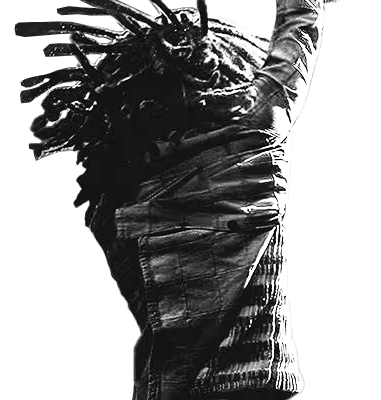‘Bob Marley: One Love’ fails to inspire

Whether you just heard him playing at a restaurant on vacation one day or your favorite type of music has been reggae since you were born, everyone has heard Bob Marley and his inspiring music. Luckily, my dad actively listened to reggae music so my love for Bob Marley started at a young age. When I first learned a documentary movie was being made about his journey as a musician, I grew excited for the day I could watch one of the most nostalgic musicians become who he was. Unfortunately, I was disappointed with the outcome of what could’ve been an amazing movie.
‘Bob Marley: One Love’ attempts to display the powerful story of Bob Marley’s revolutionary music. Directed by Reinaldo Marcus Green and starring Kingsley Ben-Adir, the movie starts off with showing the political violence Jamaica faced as it grew closer to becoming a civil war. The most evocative image in the movie was when Bob survived an assassination attempt and decided to move forward with his free concert in Jamaica that was meant to bring peace. The scene was quick yet truly gave insight of why Bob Marley was a symbol of hope for the citizens of Jamaica. Seeing this scene gave me hope for the film, yet I was quickly disappointed as this was the most enticing part of the movie.
Shortly after his concert, Bob Marley and the Wailers traveled to London to record a new album. Viewers see the band create a new sound and album called ‘Exodus’, one of their most popular albums. Although there are glimpses of faith throughout the movie, the album shows Bob Marley’s connection to his faith in Rastafari. As someone who is not educated in this religion, it was amazing to witness ways in which it is incorporated in Bob Marley’s life. His story takes a turn for the worst when he was diagnosed with melanoma in his big toe. After being told the only solution would be to cut off the area, Bob declines and leaves the office and the viewers in despair.
In 1978, Bob Marley finally returned to his home in Jamaica. The same gunman who attempted to assassinate him in the beginning of the movie is shown asking for forgiveness. Bob Marley says he has no vengeance in his heart and is later shown sitting around a fire with his family creating one of the most well-known songs, “Redemption Song”. This fully shows the epitome of Bob Marley and his morals of peace and forgiveness. Watching this scene reminded me of his goal in his music. His ability to forgive someone who tried to kill him demonstrates how important peace and love was for him.
The movie ends with Bob Marley and the Wailers performing in Jamaica before his death on May 11, 1981 from cancer. The footage from his concert however shows where he brought together two opposing political leaders as a symbol of unity. During this movie, there were many moments that felt like a waste of time, while others felt emotionally moving. The real footage of the concert left me at the theater with a smile on my face knowing Bob Marley achieved his goal and continues to be an inspiration to this day.
Although the director’s effort to create an inspiring movie was shown, I believe it definitely could’ve been shown in a more influential way. Overall, the movie felt rushed and didn’t give full insight of Bob Marley as a person. As someone who has loved Bob Marley since I was a child, it felt as if the movie lacked the true meaning of his music and failed to be even half as inspiring as he was. Despite these flaws, Ben-Adir and his co-stars did an amazing job carrying out their characters and their role in the movie.



